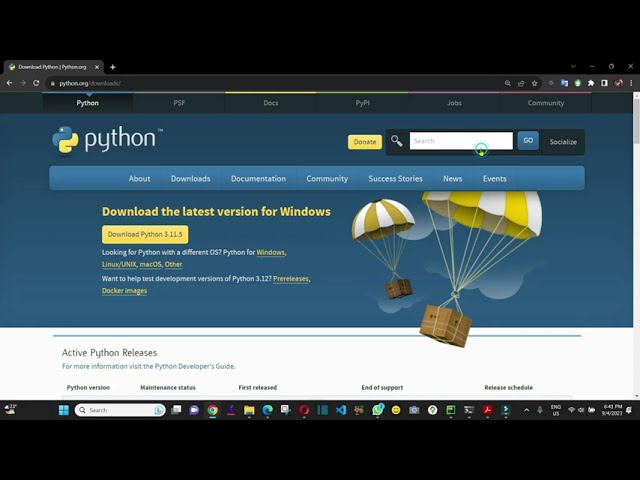How to solve ModuleNotFoundError: No module named ‘billiard’ in python

When programming in Python, encountering an error like ModuleNotFoundError: No module named ‘billiard’ can be frustrating. Not only does it halt your work, but it also raises questions about your project setup and the modules you are using. In this article, we will explore various aspects of this error, why it occurs, and how to effectively resolve ModuleNotFoundError: No module named ‘billiard’ in your projects.
The Basics of Python Modules and Imports
Before diving deeper into the specific error, it is essential to understand the basic concepts of Python modules and imports. Python is designed to be a modular programming language, which means you can break down your code into multiple files, known as modules. This allows for better organization and reusability of code.
Understanding Python Modules
A module is simply a file that contains Python code. It can define functions, classes, and variables that can be imported into other modules or scripts. To use a module, you need to import it into your codebase using the import statement. For example:
import my_moduleCommon Errors During Module Import
During the import process, you may encounter various errors. The most common error is the ModuleNotFoundError. This indicates that Python cannot locate the module you are trying to import. One such instance is ModuleNotFoundError: No module named ‘billiard’. Understanding the root causes of this error is crucial for troubleshooting.
Why Does the Billiard Module Cause Errors?
The billiard module is a Python package that is often used for multiprocessing tasks. It is essential for applications that require parallel execution of tasks. If you receive an error like ModuleNotFoundError: No module named ‘billiard’, there could be several reasons behind it.
Potential Causes of the Error
- Module Not Installed: The billiard module may not be installed on your system.
- Virtual Environment Issues: You might be working in a virtual environment where billiard isn’t installed.
- Python Version Compatibility: The version of Python you are using might not support the billiard module.
- Typographical Errors: Spelling mistakes or incorrect casing in your import statement can lead to this error.
How to Solve ModuleNotFoundError: No module named ‘billiard’
To effectively address the ModuleNotFoundError: No module named ‘billiard’ error, follow these steps to ensure that you have the module installed and available for your project.
Step 1: Install the Billiard Module
The first step to solve the error is to check if the billiard module is installed. You can safely install it using pip, the package installer for Python. Open your terminal and input the following command:
pip install billiardIf you’re using Python 3, you may need to use pip3 instead:
pip3 install billiardStep 2: Verify Your Installation
After installation, it’s a good practice to verify that the package has been correctly installed. You can check the list of installed packages using the following command:
pip listLook for billiard in the output list. If it’s present, you’ve successfully installed the module.
Step 3: Check Your Virtual Environment
If you’re using a virtual environment, make sure that it is activated before you try to install or check the module. Use the following command to activate your virtual environment:
source your_env/bin/activateReplace your_env with the name of your virtual environment.
Step 4: Ensure Correct Python Version
It is crucial to ensure that you are using a compatible version of Python. Confirm your Python version with:
python --versionEnsure that it matches the requirements specified for the billiard module. Updating Python or adjusting your project settings may be necessary if version incompatibility is identified.
Best Practices for Managing Python Modules
Understanding how to manage your Python modules efficiently can help prevent errors like ModuleNotFoundError: No module named ‘billiard’ from occurring in the first place. Below are some best practices:
Use Virtual Environments
Always use virtual environments for your Python projects. This isolates your project dependencies from system-level packages and prevents version conflicts. You can create a new virtual environment with:
python -m venv myenvRegularly Update Dependencies
Modules and packages are frequently updated to fix bugs and introduce new features. Keeping your dependencies updated can reduce the likelihood of running into compatibility issues. Use:
pip list --outdatedto check for outdated packages and then update them with:
pip install --upgrade package_nameDocument Your Dependencies
It can be beneficial to maintain a requirements.txt file that lists all your project’s dependencies. This way, others (or you in the future) can easily replicate the environment by running:
pip install -r requirements.txtAdditional Troubleshooting Tips
If you still experience problems with the billiard module after following the steps above, consider these additional troubleshooting techniques:
Check for Multiple Python Installations
Having multiple Python installations can lead to confusion regarding which version you are using. Ensure that your system’s PATH variable points to the correct Python version. You can check your current Python executable by running:
which pythonIf it’s pointing to an unexpected installation, you may need to modify your PATH or use an absolute path to the correct Python executable when running your scripts.
Review Permissions and Access Issues
If you are working in a restricted environment (such as a corporate server), you might not have the necessary permissions to install packages. Consult your system administrator for guidance.
Community Support
When all else fails, don’t hesitate to reach out for help. Platforms such as Stack Overflow, GitHub discussions, and Python forums can offer valuable assistance from community members who may have faced similar issues.





